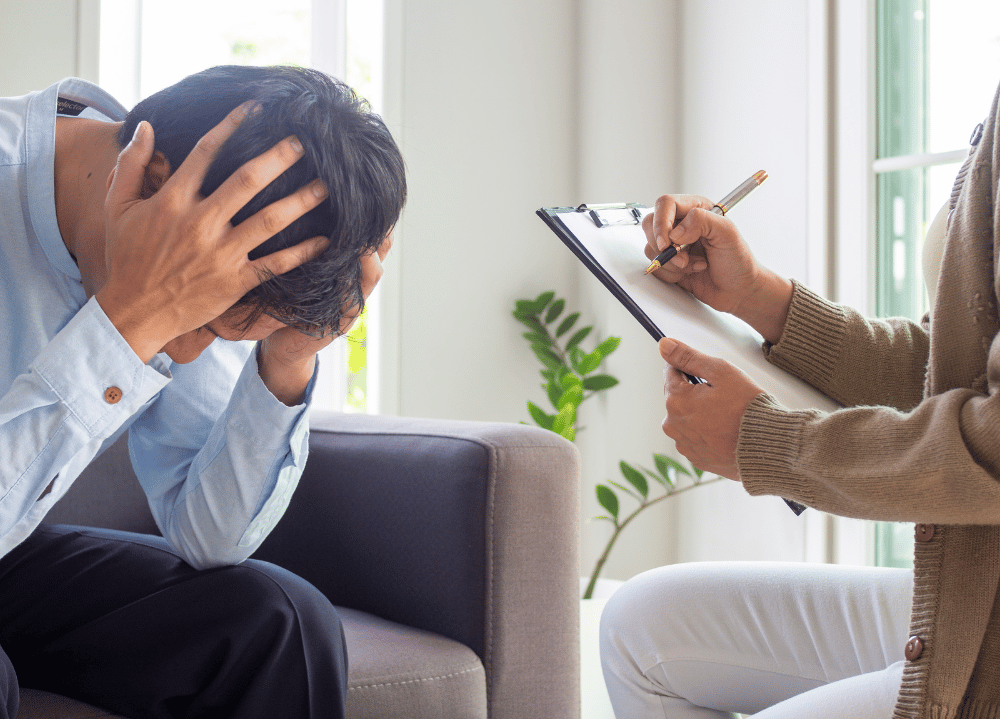Depression

What is Depression?
Depression is the inability to do daily life activities with focus and attention. It is an ongoing mood disorder that leaves a significant impact on an individual’s ability to work, struggling with relationships, and overall mental well-being. Every individual faces different forms of depression; some go through traumatic events, loss of loved ones, financial crises, and internal body imbalances, while others get affected by environmental conditions. If you take depression treatment with the right medications and therapies, you will be able to recover from it with an improved lifestyle and better mental well-being.


Types of Depression?
People are suffering from different types of depression like clinical depression, or persistent depressive disorder. If not treated with effective depression medication, it can result in harmful consequences. Find below the types of depression, and if you experience one, then contact your healthcare provider for depression treatment and overcome it as soon as possible.
- Clinical depression or major depressive disorder
- Persistent depressive disorder – PDD
- Disruptive mood dysregulation disorder – DMDD
- Premenstrual dysphoric disorder – PMDD
Common Depression Symptoms
Depression starts with a range of symptoms that start from low to severe affecting an individual’s well-being whether mental, physical, or cognitive. You can consult a depression doctor if you experience any of these symptoms and get depression treatment as soon as possible to overcome your severe mental health condition and return to your life like a shining star. Some common depression symptoms include:
- Constant feelings of negativity, sadness, distress, and frustration.
- Finding no interest in positive surroundings and pleasure.
- Major changes in appetite, lack of interest, and weight loss.
- Irregular sleep schedules and patterns, either insomnia or hypersomnia.
- Lack of concentration, focus in remembering details, and indecisiveness.
- Continuous headaches, stomach issues, and sexual dysfunction.
- Continual thoughts of suicide or self-harm.

Depression Treatment
If you are feeling blue and have no idea how to come out of this, then depression treatment can light up your way. You may consult with a certified psychiatric nurse practitioner who can help you in finding the symptoms. A depression doctor combines different strategies, depression therapies, medications, and lifestyle changes to create a personalized plan for you. With every depression treatment, you are not just managing symptoms but restoring balance and bringing hope into your life.
Depression treatment begins with an interaction with your patient where you get to know about your patient’s current symptoms, past experiences, medical history, and any previous treatment plans or medications. This will help in evaluating and diagnosing the depression intensity and what type of depression symptoms are present to treat.
When the depression symptoms are diagnosed, a depression doctor creates a personalized treatment plan, which includes depression therapy, depression medication if needed, and some other lifestyle changes where required. Depression medication or antidepressant medication is prescribed to only those patients where the case is severe or requires necessary medication management.
Follow-up appointments analyze the condition of the patient and tell about how much treatment is needed. With continuous sessions, patients experience drastic changes in their lifestyle, mental health, and overall well-being.

Benefits of Depression Treatment
To find out the root causes of your depression symptoms and the struggles that you are facing, your doctor may go above and beyond to create depression treatment plans tailored to your needs. Through combined depression therapies, you’ll regain control of your life and enjoy the surroundings with positivity.
You will be provided effective methods and treatments for curing depression symptoms that bring positive impact and hope in your life. With repeated sessions and depression therapy, patients might be able to face life challenges with a positive mind, and spread joy within the environment. Getting life-changing therapies will help you lead a meaningful life.